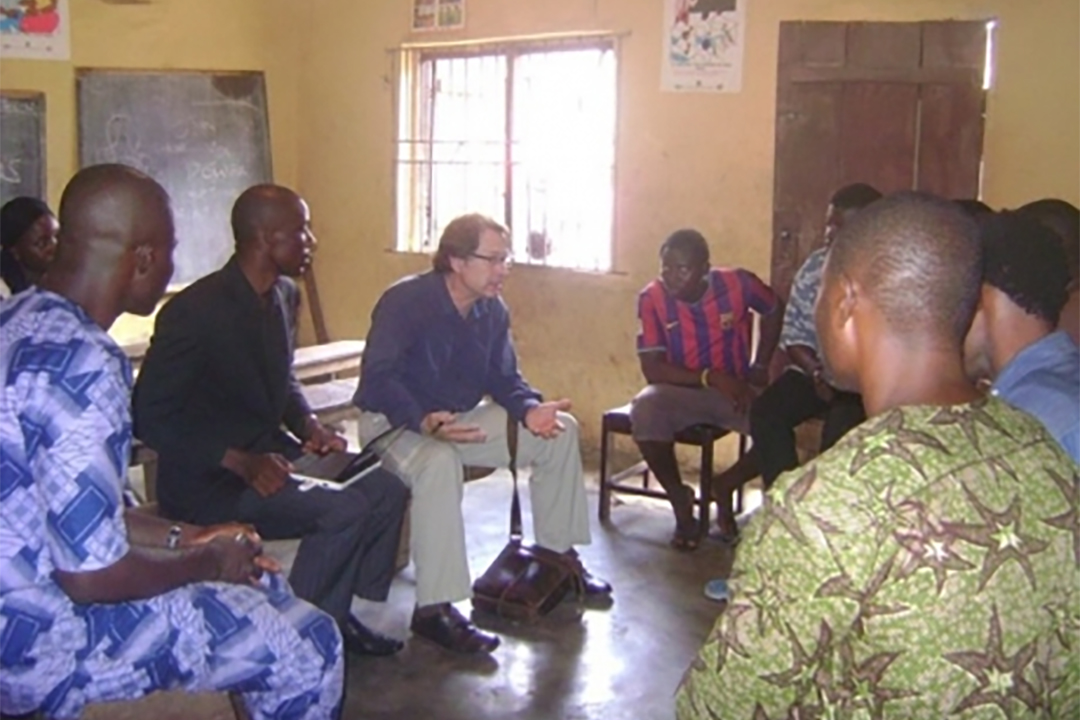On behalf of the U.S. government, Professor Steven Livingston has spent the last few years researching the effects of information and communication technology (ICT) in Africa. He published a report in October titled Africa's Information Revolution: Implications on Crime, Policing, and Citizen Security that has garnered much attention from embassies, governments and NGOs around the world.
The study is the second of a two-part series that Livingston was commissioned to create for the Africa Center for Strategic Studies and is the result of two years of hard work, including travel to Nigeria, South Africa, Kenya, Uganda, with separate visits to Rwanda and the Congo. The results guide the efforts of USAID, local governments and other organizations involved in development in Africa.
Livingston found that technology interventions – through increased connection and transparency – decrease crime and increase accountability for corrupt police and other officials.
"It's hard for somebody who hasn't been there to imagine what it's like to live, or work in, or even visit a slum in a place like Lagos with absolutely nothing," Livingston says. "No running water, no security, nothing."
Livingston visited Nigerian jails, where he witnessed the horrific living conditions of prisoners – including women and children. Many of these prisoners were locked up for unknown reasons due to the lack of an effective judiciary system.
"It has to do with corruption," Livingston says. "The ultimate question is, 'How can we leverage various kinds of technology – cell phones, open maps – to get a grip on some aspect of this situation?'"
The report has been welcomed by local human rights activists for its data and timeliness and has been shared among top officials in the U.S. State Department, Defense Department, Security Council and USAID, as well as among members of the national intelligence community.
Livingston hopes it will lead to increased dialogue and efforts to create and maintain transparency for government and police forces. Already he has suggested the creation of a campaign called Stop the Bribes, which has been taken up by the Cleen Foundation and has received the cooperation of the Nigerian police in order to end bribing operations conducted by local police officers.
Livingston's interest in the field of digitally enabled collective action in areas of limited statehood began after years of research into powerful media and governmental organizations in the United States. After receiving invitations to several African and Middle Eastern countries to help governments improve their ability to communicate with citizens, his research focus shifted. Seeing first-hand these states' expensive and failed attempts at creating powerful institutions, Livingston became more interested in the challenges faced and technologies used create effective governance.
"That got me thinking about, 'What other ways can communities provide for those public goods without the necessity of powerful states or powerful media organizations?'" Livingston says.
Livingston will speak about similar research at the University of Pennsylvania's Center for Global Communication Studies on Monday, December 9. He recently published a new book, Bits and Atoms: Information and Communication Technology in Areas of Limited Statehood, co-edited by Gregor Walter-Drop.


